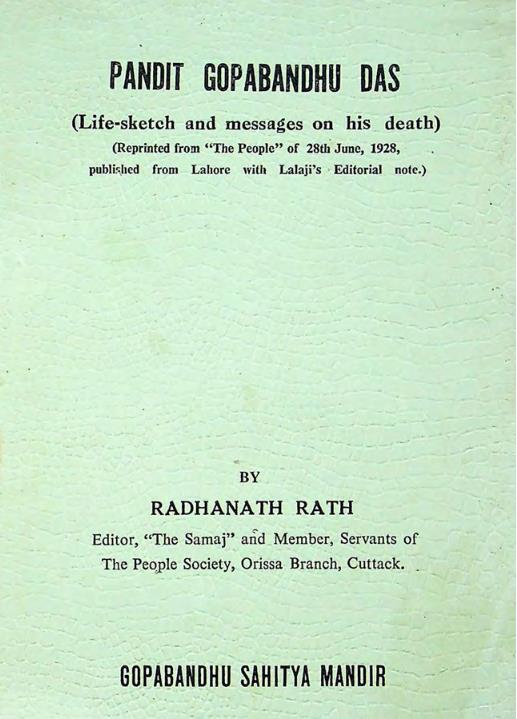Pandit Gopabandhu Das is a revered figure in Odia literature and social reform, often hailed for his profound influence on the cultural and educational landscape of Odisha. Born on October 9, 1877, in a small village called Suando, Ganjam district, Gopabandhu’s life and work continue to inspire generations, cementing his status as a revered stalwart of Odia identity.
From a young age, Gopabandhu exhibited a keen interest in literature and the arts. He completed his schooling in Bhubaneswar, where his affinity for the Odia language blossomed. He went on to further his studies at the prestigious University of Calcutta, where he not only honed his skills in literature but also became acquainted with progressive ideas that fueled his future endeavors.
His education was not just confined to academics; Gopabandhu was deeply influenced by the socio-political conditions of his time, particularly the implications of colonial rule on Indian society. This awareness spurred his commitment to uplifting his community, leading him to explore education as a means of empowerment.
Gopabandhu Das was not just an educator but also a prolific writer and poet. His literary works, which encompass poetry, essays, and plays, reflect the socio-cultural ethos of Odisha while also addressing contemporary issues. He founded the Odia monthly magazine, “Utkal Sahitya,” which played a pivotal role in promoting Odia literature and raising awareness about nationalistic sentiments during the freedom struggle.
His poems often conveyed themes of patriotism, social justice, and human dignity, inspiring a sense of pride in Odia culture. His masterful use of the Odia language resonated with readers, making complex ideas accessible and engaging. Gopabandhu was a promoter of modern Odia literature and was instrumental in the revival of the Odia language during a time of cultural stagnation.
Gopabandhu was a staunch advocate for social reform. He recognized the importance of education in breaking the shackles of social injustice and poverty. In 1909, he founded the Satyabadi Bana Vidyalaya in Satyabadi, which became a model for progressive education in Odisha. The institution aimed to foster holistic development among students, emphasizing moral values alongside academic success.
His efforts were not limited to education; Gopabandhu was actively involved in the Indian independence movement. He urged the Odia people to unite against colonial oppression, drawing from his literary prowess to spread awareness and incite a sense of nationalism. His vision encompassed a free India where all communities, especially the marginalized, would have equal access to opportunities.
Pandit Gopabandhu Das passed away on June 17, 1938, but his legacy continues to live on. He remains a symbolic figure in Odisha’s cultural renaissance, fondly remembered for his contributions to education, literature, and social reforms. His life exemplifies the spirit of dedication to one’s roots and a commitment to uplifting society through knowledge and art.
In conclusion, Gopabandhu Das’s enduring influence is a testament to his belief in the transformative power of education and literature. As Odia culture progresses, his principles and ideals serve as guiding lights, reminding us of the importance of serving our community and fostering a spirit of unity and progress.
Books Info
| Books name | Pandit Gopabandhu Das |
| Author | Radhanath Rath |
| No Of pages | 29 |
| Publisher | NA |
| Publication | 2013 |
| Printed At | NA |
| Distributor | NA |

